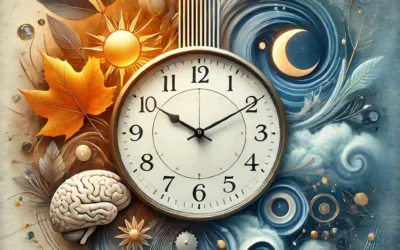The holiday season is a time of joy, celebration, and connection, offering opportunities to create cherished memories with loved ones. However, for individuals with bipolar disorder, this festive period can also bring challenges, as the heightened energy and emotional demands of the season may increase vulnerability to mood episodes. While the holidays can present stressors, they also provide a chance to embrace supportive routines and meaningful traditions that can positively impact mental health.
Clinical Insights into the Holiday Effects on Bipolar Disorder
Increased Vulnerability During Holidays
Studies have shown that the holiday season is associated with a notable increase in mood instability among individuals with bipolar disorder. According to a survey conducted by the National Alliance on Mental Illness (NAMI), approximately 64% of individuals with mental illness report worsening symptoms during the holidays, which can include both manic and depressive episodes.
Common Triggers Identified in Research
Several factors contribute to the increased vulnerability during this time:
- Stress and Anxiety: The pressures associated with holiday preparations, family gatherings, and financial constraints can lead to significant stress. Research from institutions such as the National Institute of Mental Health (NIMH) highlights how stress is a well-documented trigger for mood episodes in bipolar patients.
- Disruption of Routines: The holiday season often disrupts established daily routines, including sleep patterns. A study published in Nature indicates that disruptions in circadian rhythms can exacerbate mood disorders, particularly in bipolar patients who are sensitive to changes in their environment.
- Social Isolation: While many experience joy during the holidays, others may feel isolated or disconnected. This emotional strain can lead to depressive episodes, particularly in those who already struggle with feelings of loneliness during this time.
- Alcohol Consumption: The prevalence of alcohol at social gatherings poses a significant risk for individuals with bipolar disorder. Studies indicate that alcohol use can trigger manic or depressive episodes, complicating management strategies for those in recovery.
Seasonal Affective Disorder (SAD) Connection
Seasonal Affective Disorder (SAD) is another critical factor that can overlap with bipolar disorder during the winter months. Research has shown that approximately 10-22% of patients with bipolar disorder exhibit seasonal patterns in their symptoms, with depressive episodes often peaking during winter months due to reduced sunlight exposure.Institutions like the American Psychiatric Association have documented these seasonal variations, emphasizing their relevance in clinical practice.
Coping Strategies Supported by Research
To mitigate these effects, several evidence-based strategies can be employed:
- Routine Maintenance: Establishing and maintaining a consistent daily routine can help stabilize mood. Studies have shown that patients who adhere to regular sleep and activity schedules experience fewer mood episodes.
- Mindful Alcohol Use: Limiting alcohol consumption is crucial for managing moods. Evidence suggests that avoiding alcohol can significantly reduce the risk of triggering manic or depressive episodes during stressful times.
- Self-Care Practices: Engaging in self-care activities such as exercise, mindfulness, and social support has been shown to improve overall mental health outcomes. The Substance Abuse and Mental Health Services Administration (SAMHSA) recommends these practices as effective coping mechanisms during high-stress periods.
- Seeking Professional Help: It is vital for individuals experiencing overwhelming symptoms to seek professional assistance. Accessing therapy or medication management can provide necessary support during challenging times.
In summary, while the holiday season presents unique challenges for individuals with bipolar disorder due to increased stressors and emotional demands, understanding these factors and implementing effective coping strategies can help manage symptoms effectively. Ongoing research continues to illuminate the complex interplay between seasonal changes and mental health, underscoring the importance of tailored interventions for this vulnerable population.
Sources:
Supporting Your Mental Health During the Holiday Season. (n.d.). SAMHSA. https://www.samhsa.gov/blog/supporting-your-mental-health-during-holiday-seasonEllis, M. E. (2023, December 19).
Identifying and Managing Bipolar Triggers During the Holiday Season – BrightQuest Treatment Centers. BrightQuest Treatment Centers. https://www.brightquest.com/blog/identifying-and-managing-bipolar-triggers-during-the-holiday-season
Aguglia, A., Borsotti, A., & Maina, G. (2017). Bipolar disorders: is there an influence of seasonality or photoperiod? Brazilian Journal of Psychiatry, 40(1), 6–11. https://doi.org/10.1590/1516-4446-2016-2144
Zhang, R., & Volkow, N. D. (2023). Seasonality of brain function: role in psychiatric disorders. Translational Psychiatry, 13(1). https://doi.org/10.1038/s41398-023-02365-x



